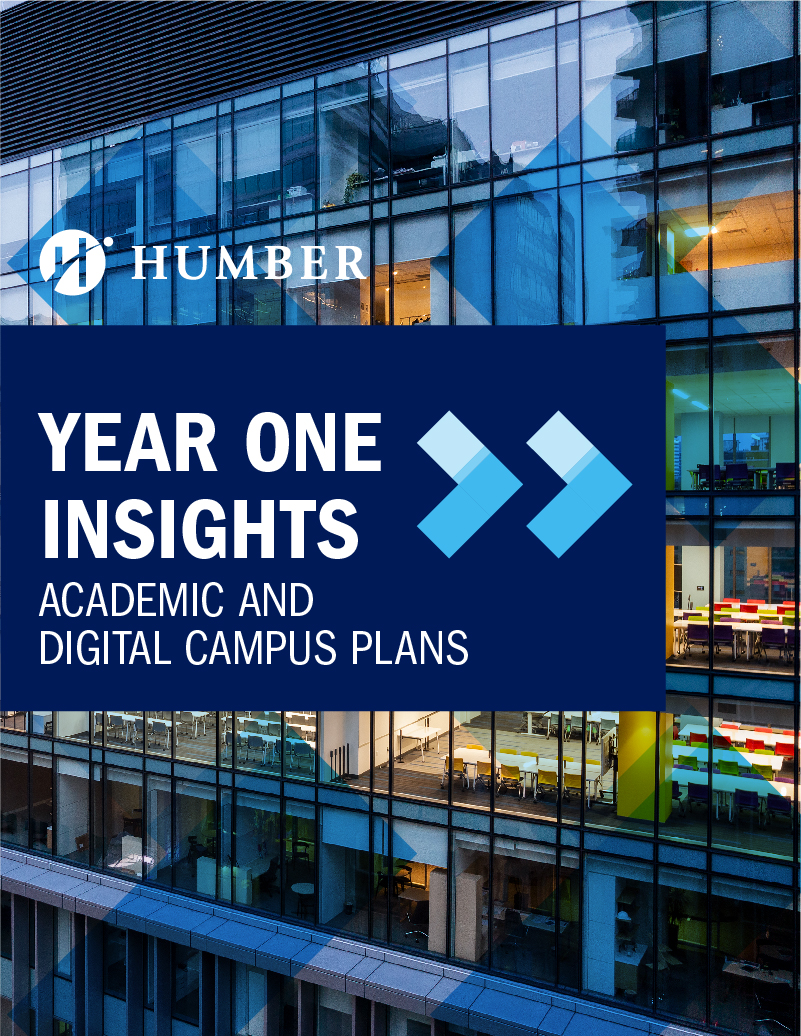Academic Plan Flexible Learning Strategy Updates
At the heart of the Academic Plan is Humber’s ongoing commitment to student-centred education – to being an institution that puts the needs of our learners first. Flexibility has increasingly become a priority for students and educational institutions, and for us, a flexible learning strategy includes flexible scheduling and delivery options. In year one of the Academic Plan, strides have been made in building capacity to offer greater flexibility, including a condensed scheduling pilot that has resulted in positive student outcomes and satisfaction levels.
Flexible Scheduling
One flexible scheduling approach implemented in the first year of the Academic Plan is condensed scheduling. Last fall, the Faculty of Social and Community Services (FSCS) piloted condensed scheduling in 13 programs. Courses associated with a program were scheduled to enable students to only attend campus for a maximum of three days per week, allowing them at least two days without classes. Assessment of the pilot showed that retention rates were significantly higher in Fall 2023 compared to Fall 2022 and that these improvements were most notable among students in their first semester and in diploma programs. Surveys also revealed student satisfaction with the condensed scheduling, which gave them time to focus on studying and assignments while also managing part-time employment. In terms of next steps, while we continue to measure retention and satisfaction with the students in the FSCS pilot, we will also be examining the potential to expand the number of programs using a compressed, three-day schedule.
In addition to the pilot in FSCS, in this first year we undertook an analysis of the programs and systems that act as enablers or barriers to flexible scheduling. By the end of the Academic Plan, we will have models and systems that support flexible program formats, and we anticipate expanding the availability of flexible scheduling offered at Humber.
Flexible Delivery
In the first year of the Academic Plan, we prioritized building the necessary resources and faculty capacity to support flexible course delivery. We accomplished this by:
- Developing micro-credentials in facilitating learning and teaching in any setting and learning in flexible environments;
- Moving programs to online delivery;
- Creating lesson planning templates to guide faculty in adapting their content to engaging high quality learning experiences; and
- Implementing a decision matrix for administrators to determine the best delivery mode based on learner needs and preferences.
Digital fluency competencies are critical to engaging students in hybrid and virtual learning environments. Our recent Digital Fluency post provided an update on the Digital Fluency initiative and offers further insight into the connection between flexible delivery and digital fluency.
By the end of the Academic Plan, Humber will have more programs delivered fully online and more delivery options within programs. We will also have greater integration between administrative processes and the data to support those decisions.
Flexible learning approaches support the personalization of learning by allowing students to have choice in how, what, when and where they learn, which in turn increases equity and access to education. I am grateful to the teams who are driving this important work forward across the organization.
Gina Antonacci,
Senior Vice-President, Academic

